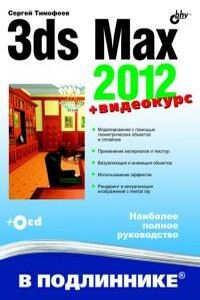The Official Radare2 Book | страница 29
%S The second as a decimal number (range 00 to 60). (The range is up to 60 to allow for occasional leap seconds.)
%T The time in 24-hour notation (%H:%M:%S). (SU)
%y The year as a decimal number without a century (range 00 to 99).
%Y The year as a decimal number including the century.
%z The +hhmm or -hhmm numeric timezone (that is, the hour and minute offset from UTC). (SU)
%Z The timezone name or abbreviation.
There are print modes available for all basic types. If you are interested in a more complex structure, type pf?? for format characters and pf??? for examples:
[0x00499999]> pf??
|pf: pf[.k[.f[=v]]|[v]]|[n]|[0|cnt][fmt] [a0 a1 ...]
| Format:
| b byte (unsigned)
| B resolve enum bitfield (see t?)
| c char (signed byte)
| C byte in decimal
| d 0xHEX value (4 bytes) (see 'i' and 'x')
| D disassemble one opcode
| e temporally swap endian
| E resolve enum name (see t?)
| f float value (4 bytes)
| F double value (8 bytes)
| i signed integer value (4 bytes) (see 'd' and 'x')
| n next char specifies size of signed value (1, 2, 4 or 8 byte(s))
| N next char specifies size of unsigned value (1, 2, 4 or 8 byte(s))
| o octal value (4 byte)
| p pointer reference (2, 4 or 8 bytes)
| q quadword (8 bytes)
| r CPU register `pf r (eax)plop`
| s 32bit pointer to string (4 bytes)
| S 64bit pointer to string (8 bytes)
| t UNIX timestamp (4 bytes)
| T show Ten first bytes of buffer
| u uleb128 (variable length)
| w word (2 bytes unsigned short in hex)
| x 0xHEX value and flag (fd @ addr) (see 'd' and 'i')
| X show formatted hexpairs
| z null terminated string
| Z null terminated wide string
| ? data structure `pf ? (struct_name)example_name`
| * next char is pointer (honors asm.bits)
| + toggle show flags for each offset
| : skip 4 bytes
| . skip 1 byte
| ; rewind 4 bytes
| , rewind 1 byte
Use triple-question-mark pf??? to get some examples using print format strings.
[0x00499999]>
pf???
|pf: pf[.k[.f[=v]]|[v]]|[n]|[0|cnt][fmt] [a0 a1 ...]
| Examples:
| pf 3xi foo bar 3-array of struct, each
with named fields: 'foo' as hex, and 'bar' as int
| pf B (BitFldType)arg_name` bitfield type
| pf E (EnumType)arg_name` enum type


